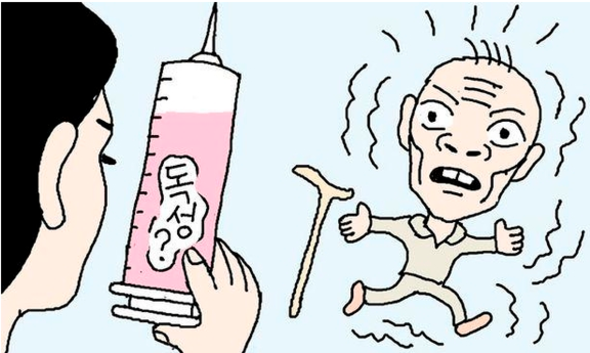Input 2021.03.05 06:00
Mr. Park said, “I can see a little notice at work, but if the safety is verified after other people get hit, it will not be too late to get vaccinated.” I said.

According to the Korea Centers for Disease Control and Prevention on the 4th, a total of two vaccination deaths have occurred since the start of the corona vaccination on the 26th of last month. A in her 50s who received the AstraZeneca vaccine on the 2nd showed symptoms of a heart attack and died on the 3rd, and on the 27th of last month, B in her 60s, who received the same vaccine, also showed symptoms such as high fever, systemic pain, and pneumonia. did.
With the death toll after vaccination, the number of people withholding or refusing vaccination is increasing. As a result, concerns are growing that if the vaccination rate drops, it will inevitably interfere with the government’s recently announced plan to complete population immunity in November.
At this point, it has emerged as the greatest task of the quarantine authorities to eliminate anxiety about side effects of vaccines, but many point out that they have not come up with sharp measures. In particular, voices among the general public are growing, saying, “Like other countries, the President or the Minister of Health and Welfare should first relieve the public’s vaccination anxiety through vaccination?”
This public opinion spread even more rapidly as the president of the Korean Medical Association, the largest house, posted a post on his Facebook page stating that “President Moon Jae-in should inoculate the corona vaccine tomorrow (4th) to relieve public anxiety. On the afternoon of the 4th, the Blue House, conscious of public opinion, announced a position that “the president is willing to get an AstraZeneca (AZ) vaccine,” and started to evolve against the spread of vaccine anxiety. However, the specific timing of vaccination has not yet been disclosed.
Office worker Choi Mo (43) said, “I think the president should have been the first to get the vaccine like other countries,” he said. “It doesn’t seem like it’s fast now.”

In the UK, where vaccination was started several months earlier, 402 deaths were reported after vaccination, and 113 deaths were reported in Germany. However, no cases of death from vaccination have been confirmed to date.
The difficulty of proving causality is also revealed in that there were very few cases where causality was acknowledged in the case of death after being vaccinated against the flu. It is known that only one case has been admitted to death by health authorities from influenza vaccination.
In 2009, a woman in her 60s who died after being vaccinated against the influenza was recognized as having died from the influenza vaccine. Last year, there were 110 reported deaths related to flu vaccination, but none were finally found to have resulted in death from flu vaccination.
For this reason, some argue that the Korean government, like Japan, should relieve the burden of proving causality. Unlike the Korean government, Japan has established a policy to pay national compensation without proof of causality in the event of death or adverse health effects after vaccination.
Meanwhile, according to the Korea Centers for Disease Control and Prevention, the number of primary vaccinations for corona prevention as of 0 o’clock on the 4th was 15,4421. Among them, 151679 people were vaccinated against AstraZeneca (AZ) and 2742 people were vaccinated against Pfizer. About 0.3% of all citizens (5.83 million people) have completed the first vaccination.
